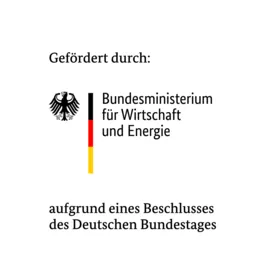Zur Zeit gibt es keine Einträge.
NEFTON - Electrification and Integration of Heavy Commercial Vehicles
Contact: Georg Balke, Jakob Schneider, Maximilian Zähringer
Idea

Road-based cargo transport is the backbone of our economy. Rising demand for transport capacity results in growing mobility and demands a change towards sustainable powertrain concepts in heavy-duty commercial vehicles. In order to decarbonize the transport sector and contribute to the 2° goal of the Paris Climate Accord, the European Union has mandated a reduction in CO2 emissions by 30% compared to 2019. To comply with these new regulations, for heavy commercial vehicles an alternative to internal combustion engines (ICE) has to be found.
The Project NEFTON aims to develop a fully electric transport system consisting of a truck, charging infrastructure and power grid connection, which is centeres around the MegaWatt Charging System (MCS) with up to 1.5MW charging power. A team of reknown partners from industrial and research background is set to revolutionize electric transportation.
Goal
The aim of this research project is to investigate the chain of effects of the Megawatt Charging System, starting with the requirements definition in cooperataion with commercial vehicle operators, resulting in electric vehicle concepts and (fast) charging infrastructure concepts and evaluation of feasibility and economic viability. Therefore, based on movement and transport profiles, an optimal electric commercial vehicle concept is defined and implemented based on an existing truck. In coordination with the vehicle and user requirements, the uni- and bidirectional power electronics of the charging infrastructure will be designed, prototypically implemented, and their effects on the energy supply investigated. Thus, this project offers a holistic investigation of the transformation towards an electrified transport sector and its high CO2 savings potential as well as a the research on optimized grid integration.

Roadmap
- First, mobility data is collected and processed into user and requirement profiles. Based on this, simulation models for vehicle and powertrain design will be created so that concept variants can be analyzed and evaluated. In addition to assessing the technical feasibility, the systems will be evaluated in terms of efficiency and costs. In addition, the criteria of sustainability play a role, so that further economic (e.g. macroeconomic), ecological and social aspects are taken into account.
- On that basis, a vehicle prototype will be developed that optimally fulfills both the technical and customer-specific requirements. Furthermore, a highly efficient, bidirectional charging station in the megawatt range will be developed.
- The simulation-based evaluation will also enable a comparison with other technologies, such as hydrogen or trolley electric trucks, and provide recommendations for action for decision-makers from industry, research and politics.




